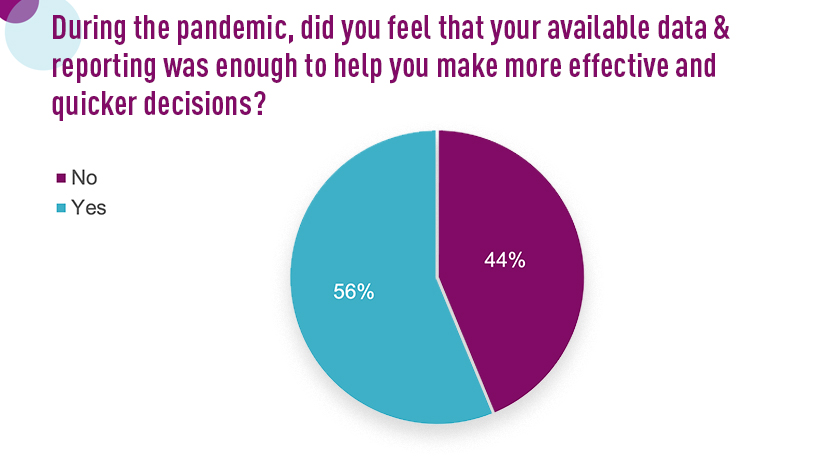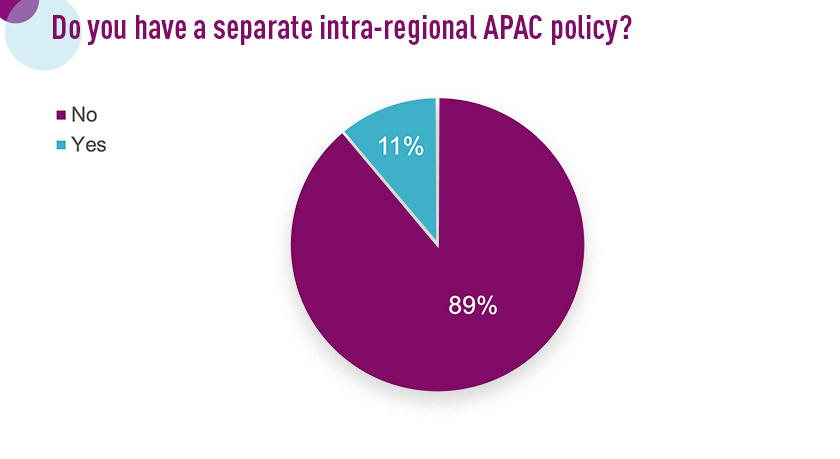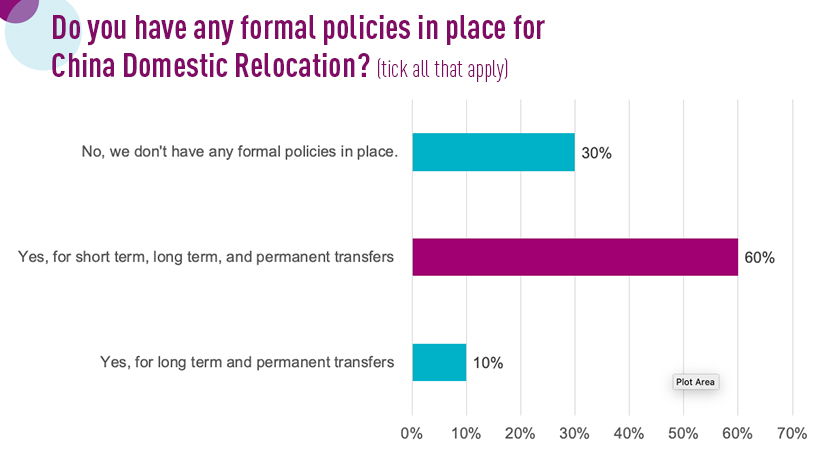Building Connections, Shaping Conversations: insideMOBILITY Asia

Each year, around the world, Graebel hosts insideMOBILITY events where leaders and innovators gather to learn about the latest in talent mobility.
Due to COVID-19, Graebel’s insideMOBILITY Asia 2020 event took place online, with workshops, panel discussions and presentations delivered via an interactive digital platform. Replicating the friendly and supportive environment of Graebel’s regular conventions, the virtual sessions ran from 1-2 December, attracting expert speakers and attendees from a wide range of global organizations.
Here, in the first of two blogs, we report on some of the key topics covered on the opening day of this unique online event.
Leveraging data in a post-COVID world
insideMOBILITY Asia kicked-off with an engaging session on the role of data in the post-COVID landscape. Introducing the topic, Graebel’s Alben Ngo explained that the pandemic has highlighted a host of data challenges and opportunities.
“When COVID first hit,” said Ngo, “there was an urgent need for data on assignees on the ground – not only to track them, but to make sure they were taken care of and support them with repatriation if needed.”
But the pandemic has also generated discussion around how data can be used more strategically to improve mobility programs and policies. And how it can be leveraged to make the mobility function more agile and better able to support business goals.
Indeed, for many businesses, COVID-19 has underscored shortfalls in data capabilities. An audience poll confirmed that 44% of participants felt their available data was not sufficient to enable quick and effective decisions during the pandemic.

To help companies on their data journey, Ngo explained that Graebel promotes a holistic approach to analytics, considering “operational and business impact metrics that connect to the overarching purpose of mobility”. By supporting operations optimization, forecasting, policy development, financial savings and stakeholder consultation, data can be used to make actionable decisions and enhance business and talent performance – reinforcing the case for mobility as an investment rather than a cost.
Across several virtual breakout rooms, participants then shared their data insights and experiences. In one session, a participant described how monthly metrics help to guide mobility volume and spend, with trend analysis providing valuable insights to enhance the employer and assignee experience. They also advised keeping several years’ worth of data on file, with 2020 demonstrating how a lack of available mobility data – due to the drop in global travel – can leave organizations short of information.
Elsewhere, participants spoke of the reliance on external providers creating issues with data consistency and consolidation. Many agreed that regular data cleaning and integration would be required in the future, while leveraging data to increase cost savings was identified as a key priority.
Mobility policies and challenges
In the second session of the day, peer-to-peer breakout groups tackled the issues of mobility policies and challenges in APAC, India and China. Before the discussions began, Graebel’s Akhbar Hameed conducted another audience poll, which showed that 89% of participants did not have a separate intra-regional APAC policy.

In the first of the APAC breakouts, the session facilitator – a global mobility peer – expressed surprise at the poll result, adding that COVID-19 has plunged companies into a “sink-or-swim” scenario. But what, she asked, are the major reasons for intra-regional transfers, and how has the pandemic impacted mobility processes and procedures?
One participant said strategic skills transfers were the biggest drivers of mobility in the region, while another said their firm was trying to operate on a BAU basis, with transfers still following business requirements as much as possible. Many referred to reduced volumes in 2020, with frequent delays in deployment due to spikes in COVID cases. Insurance was another concern, with many providers refusing to cover business travel during the pandemic.
Participants also spoke of maintaining flexible cash allowance policies and compensating “those who can’t get home”, with firms evolving their policies to maximize support for assignees and clients. Discussions in the adjacent APAC breakout, facilitated by Emily Schlomann from DFS Group, also centered on the need for increased resilience, agility and communication. Agreeing there is “no playbook for this pandemic”, participants asserted that keeping employees informed and safe at all times was paramount.
In the India group, participants addressed managed and lumpsum moves, the role of subcontractors in managing these transfers, and assignee expectations. Meanwhile the sessions on China, peer-facilitated by Ally Jiang and Wei Zhao, considered the difficulties in encouraging local talent to undertake domestic moves. With no specific policies covering internal transfers within China (reflected in the session poll below), and current restrictions on foreign arrivals, companies are looking to leverage talent from Hong Kong, Macao and Taiwan to meet their business needs. It was agreed that revisions to internal mobility procedures are required to stimulate domestic relocation.

The global mobility supply chain
Bringing the first day of insideMOBILITY Asia to a close, Graebel’s Rocky Zhao and Wilbur Tan delivered a joint presentation on the future of the global mobility supply chain.
First up, Wilbur Tan considered how COVID-19 has impacted Graebel’s suppliers. Due to lockdowns and border control measures, said Tan, global mobility business has decreased substantially around the world. Consequent loss of revenue has led many suppliers to implement harsh measures, while everyone in the supply chain continues to navigate new government regulations.
On the DSP side, there has been a decline in housing rentals in India and China, while social distancing protocols have impacted property visits and tours. In temporary accommodation, a surplus in serviced apartment vacancies has triggered a 30% drop in rates. Meanwhile, the transfer of household goods has been hit by border closures, freight delays, increased port fees and reduced crew sizes.
In response, said Tan, Graebel’s suppliers “have gone the extra mile to pivot their service offering to ensure these [issues] are addressed”. Their efforts to maintain service excellence include:
- Creating productive remote working spaces in temporary accommodation
- Introducing self-check-in and virtual packing services
- Implementing hygiene and sanitization regimes
- Closely monitoring shipments of household goods
- Providing virtual house tours
- Providing extended relief services for new households (grocery support, reduced deposits)
As for the future, Rocky Zhao proposed that suppliers who have successfully embraced the ‘new normal’ will continue to focus on technology, flexibility and customer experience. By adapting to the unique circumstances of the last year, suppliers will be well-positioned to meet future global mobility requirements. Enhanced virtual services, for example, combined with a human touch, will be a hallmark of future mobility solutions, as companies look to standardize the innovations generated by the pandemic. Agility, cost-effectiveness, speed and trust will also underpin supplier efforts to bring value to clients in the years to come.
The conversation continues
Before, during and after insideMOBILITY Asia, delegates were encouraged to meet, share and connect via Graebel’s dedicated online Slack forum. Bringing like-minded people together, this forum continues to host engaging conversation and views on the topics covered during the event and beyond. Submit your request to join here.
Please see the second blog from day two of insideMOBILITY Asia, covering costs savings and the employee experience, virtual assignments and tax, and assignment management technologies.